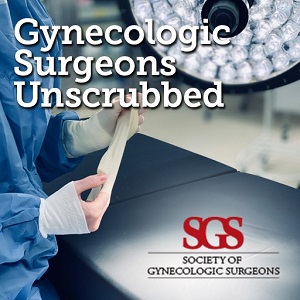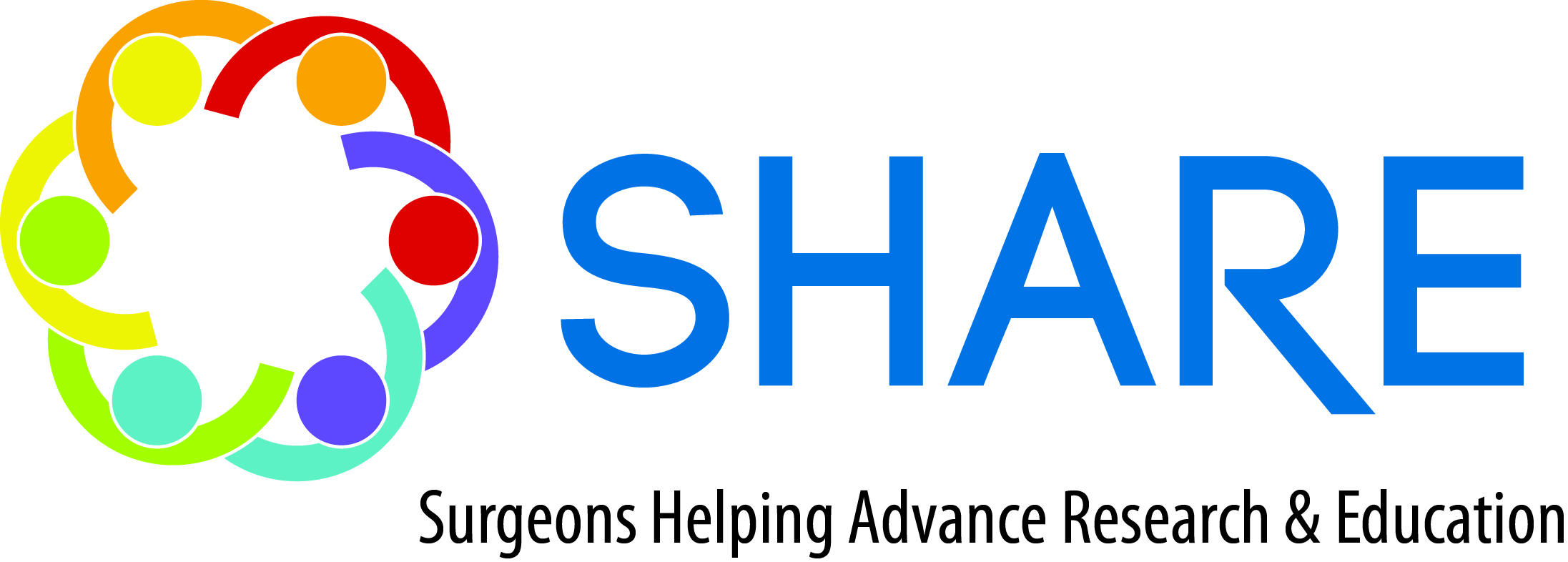PG Courses at the 2020 Annual Meeting
Sunday, July 12, 2020
Course 1: Total Laparoscopic Hysterectomy: Pushing the Envelope
Sunday July 12, 2020 | 3:00 pm - 7:00 pm ET
Course Director: Cara King, DO
Course Faculty: Sara Cohen, MD, Ted Lee, MD, Linda Yang, MD
 This course will provide a comprehensive overview of how to perform a total laparoscopic hysterectomy in the setting of complex anatomy. A methodical and reproducible approach will be described utilizing both didactics and video review. Participants will be taught surgical technique for safe peritoneal entry and port placement in the morbidly obese population. Specific attention will be devoted to pelvic anatomy including identification of the ureter, uterine artery at its origin, and hypogastric nerves for safe hysterectomy execution with avoidance of complications with large fibroids and advanced endometriosis. These dissection principles and crucial anatomic relationships can be applied to all modalities of pelvic surgery. Various methods of tissue extraction will also be reviewed for safe case completion. Furthermore, opportunity will be offered for individual case review to assist with personalized coaching for the participants. Read More >> This course will provide a comprehensive overview of how to perform a total laparoscopic hysterectomy in the setting of complex anatomy. A methodical and reproducible approach will be described utilizing both didactics and video review. Participants will be taught surgical technique for safe peritoneal entry and port placement in the morbidly obese population. Specific attention will be devoted to pelvic anatomy including identification of the ureter, uterine artery at its origin, and hypogastric nerves for safe hysterectomy execution with avoidance of complications with large fibroids and advanced endometriosis. These dissection principles and crucial anatomic relationships can be applied to all modalities of pelvic surgery. Various methods of tissue extraction will also be reviewed for safe case completion. Furthermore, opportunity will be offered for individual case review to assist with personalized coaching for the participants. Read More >>
Course 2: Enhanced Recovery After Surgery: Overcoming Barriers to Implementation
July 12, 2020 | 10:00 am - 2:00 pm ET
Course Chair: Mikio Nihira, MD
Course Faculty: Anoushka Afonso, MD, Rajiv Gala, MD and Adam Steinberg, DO
 In spite of the well-known benefits of enhanced recovery after surgery programs (EP) such as hastened patient recovery, reduced institutional costs and increased patient satisfaction, implementation of these programs has been inconsistent. The most commonly cited barriers to adoption of an EP relate to time and personnel restrictions required to develop local guidelines, limited hospital/institutional resources (financial, staffing, space restrictions, and education), resistance from other members of the perioperative team, necessity of engagement of the perioperative team, lack of knowledge about the benefits of specific interventions in the program, perceptions about patients’ social and cultural values, and institutional barriers. Institutional barriers such as lack of nursing staff and lack of financial resources from the hospital are frequently cited as barriers. This course will employ the expertise of the faculty to identify evidenced-based strategies (when available) or expert experience to overcome barriers and identifying local enablers that may be used to effectively implement an EP. Read More >> In spite of the well-known benefits of enhanced recovery after surgery programs (EP) such as hastened patient recovery, reduced institutional costs and increased patient satisfaction, implementation of these programs has been inconsistent. The most commonly cited barriers to adoption of an EP relate to time and personnel restrictions required to develop local guidelines, limited hospital/institutional resources (financial, staffing, space restrictions, and education), resistance from other members of the perioperative team, necessity of engagement of the perioperative team, lack of knowledge about the benefits of specific interventions in the program, perceptions about patients’ social and cultural values, and institutional barriers. Institutional barriers such as lack of nursing staff and lack of financial resources from the hospital are frequently cited as barriers. This course will employ the expertise of the faculty to identify evidenced-based strategies (when available) or expert experience to overcome barriers and identifying local enablers that may be used to effectively implement an EP. Read More >>
Course 3: “It’s All About The Apex” - The Key to Successful POP Surgery
July 12, 2020 | 10:00 am - 2:00 pm ET
Course Director: Charles Hanes, MD
Course Faculty: Cecile Ferrando, MD, Arnulfo Martinez, MD, Charles Rardin, MD, and Edward Varner, MD
 Identification of Apical Compartment Defects is often difficult and may be missed in the preoperative evaluation. As a result, the defect may not be properly addressed often resulting in early failure and recurrence. Apical suspensions are performed with a variety of techniques using native tissue or graft augmentation. Both transvaginal and transabdominal approaches are utilized. A panel of experts has been selected to present the various surgical approaches, expounding on the pros and cons of each. Identification of Apical Compartment Defects is often difficult and may be missed in the preoperative evaluation. As a result, the defect may not be properly addressed often resulting in early failure and recurrence. Apical suspensions are performed with a variety of techniques using native tissue or graft augmentation. Both transvaginal and transabdominal approaches are utilized. A panel of experts has been selected to present the various surgical approaches, expounding on the pros and cons of each.
Read More >>
Course 4: Transvaginal Reconstructive Pelvic Surgery Using Graft Augmentation Post FDA
July 12, 2020 | 3:00 pm - 7:00 pm ET
Course Director: Vincent Lucente, MD
Course Faculty: Charles Hanes, II, MD, Charles Butrick, MD, Michael Kennelly, MD
 This course will begin by discussing the proper selection criteria for patients experiencing symptomatic pelvic organ prolapse and are at increased risk for failure or recurrence after undergoing suture repair of native tissue only. The main content will focus on proper dissection techniques, graft sizing and deliver, securement and finally tensioning or setting. Complication prevention, recognition and management will also be reviewed. This course will begin by discussing the proper selection criteria for patients experiencing symptomatic pelvic organ prolapse and are at increased risk for failure or recurrence after undergoing suture repair of native tissue only. The main content will focus on proper dissection techniques, graft sizing and deliver, securement and finally tensioning or setting. Complication prevention, recognition and management will also be reviewed.
Read More >>
|




 |
|












 Identification of Apical Compartment Defects is often difficult and may be missed in the preoperative evaluation. As a result, the defect may not be properly addressed often resulting in early failure and recurrence. Apical suspensions are performed with a variety of techniques using native tissue or graft augmentation. Both transvaginal and transabdominal approaches are utilized. A panel of experts has been selected to present the various surgical approaches, expounding on the pros and cons of each.
Identification of Apical Compartment Defects is often difficult and may be missed in the preoperative evaluation. As a result, the defect may not be properly addressed often resulting in early failure and recurrence. Apical suspensions are performed with a variety of techniques using native tissue or graft augmentation. Both transvaginal and transabdominal approaches are utilized. A panel of experts has been selected to present the various surgical approaches, expounding on the pros and cons of each.  This course will begin by discussing the proper selection criteria for patients experiencing symptomatic pelvic organ prolapse and are at increased risk for failure or recurrence after undergoing suture repair of native tissue only. The main content will focus on proper dissection techniques, graft sizing and deliver, securement and finally tensioning or setting. Complication prevention, recognition and management will also be reviewed.
This course will begin by discussing the proper selection criteria for patients experiencing symptomatic pelvic organ prolapse and are at increased risk for failure or recurrence after undergoing suture repair of native tissue only. The main content will focus on proper dissection techniques, graft sizing and deliver, securement and finally tensioning or setting. Complication prevention, recognition and management will also be reviewed. 


